Sustainability@Doon
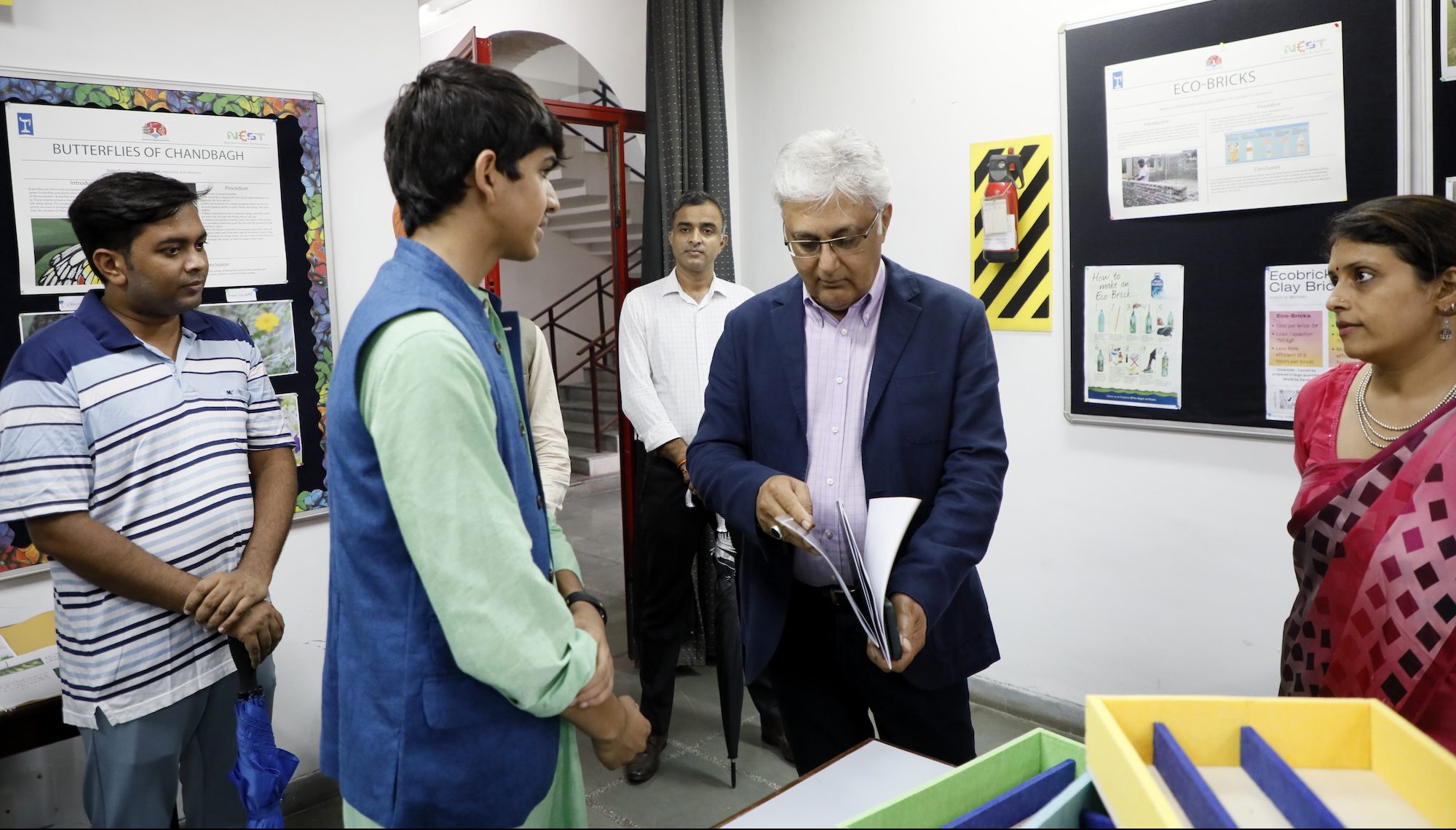
Ecobricks
The Eco brick program at Doon aims to solve the ever-pressing issue of pollution from the construction of bricks. Bricks manufacturing releases significant air pollution, including carbon dioxide, sulfur dioxide, and particulate matter, contributing to climate change, respiratory problems, and environmental degradation. In this program, plastic water bottles layered with cement were used instead of bricks avoiding the harmful effects mentioned prior. In this way, plastic bottles were recycled along with putting on display the potential capabilities of Eco bricks.
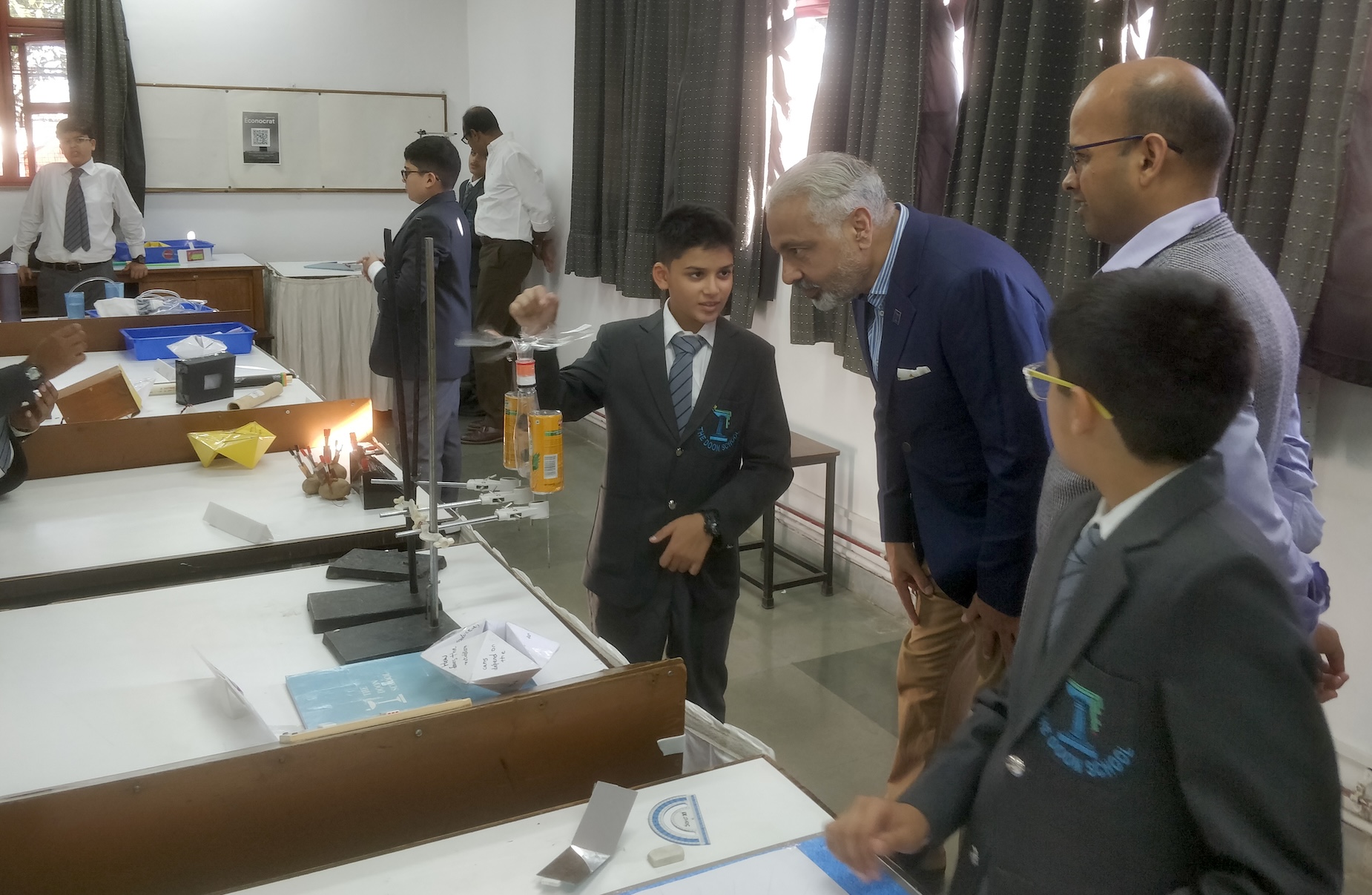
Toys from Trash
Toys from Trash is an initiative started by Professor Arvind Gupta, an alumnus of the Indian Institute of Technology, Kanpur. His motto for the program is, “The best thing a child can do with a toy is break it!” The program involves creating various school-level projects using “trash”—simply waste materials that would otherwise have no use. Examples include making a lift using pieces of straw and a string, which demonstrates the phenomenon of friction and the equations of motion. Through this initiative, Dr. Arvind Gupta aims to showcase the intuitive nature of physics and its applications in our day-to-day lives.
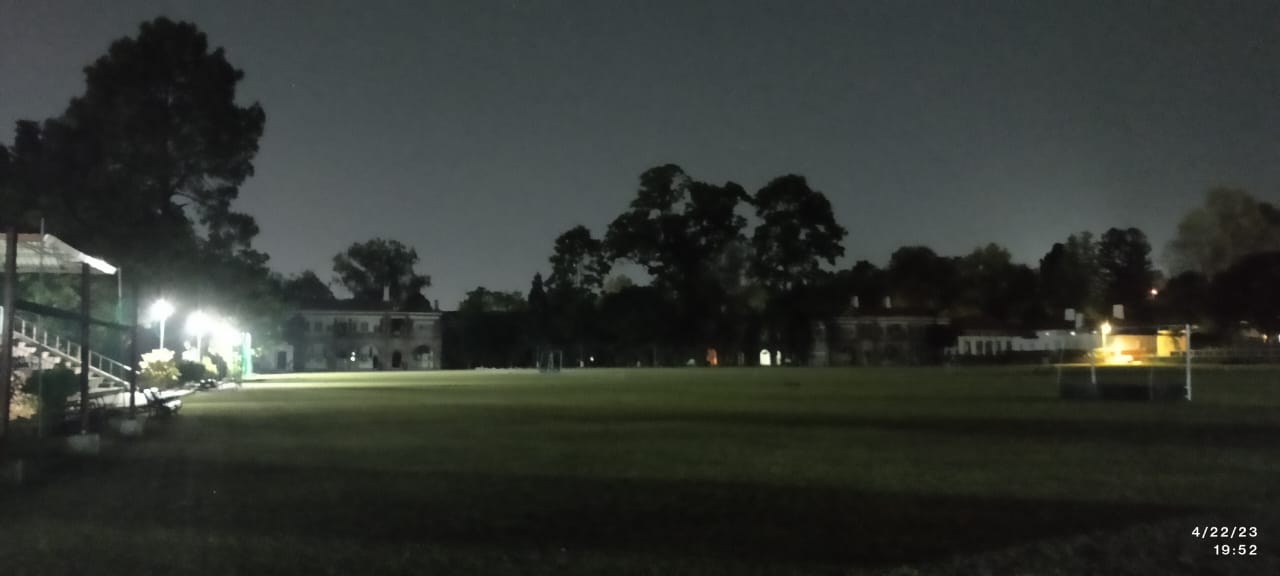
“Earth Hour”
The entire school community celebrates earth day each year by switching off all lights for half an hour. Only the lights of the CDH where the students are present for that duration and strategic security lights are kept on.

Paper Recycling
Paper recycling has played a crucial role in environmental sustainability by turning waste paper into useful items like files, folders, bags, and photo cards. The process begins with collecting and shredding the paper into small pieces, which are then soaked to create a pulp. This pulp is blended to achieve a smooth consistency. At Doon, students press and flatten the pulp onto screens to form thin sheets of paper, which are then dried and cut into various products. This hands-on experience fosters environmental responsibility and highlights the importance of sustainable practices.
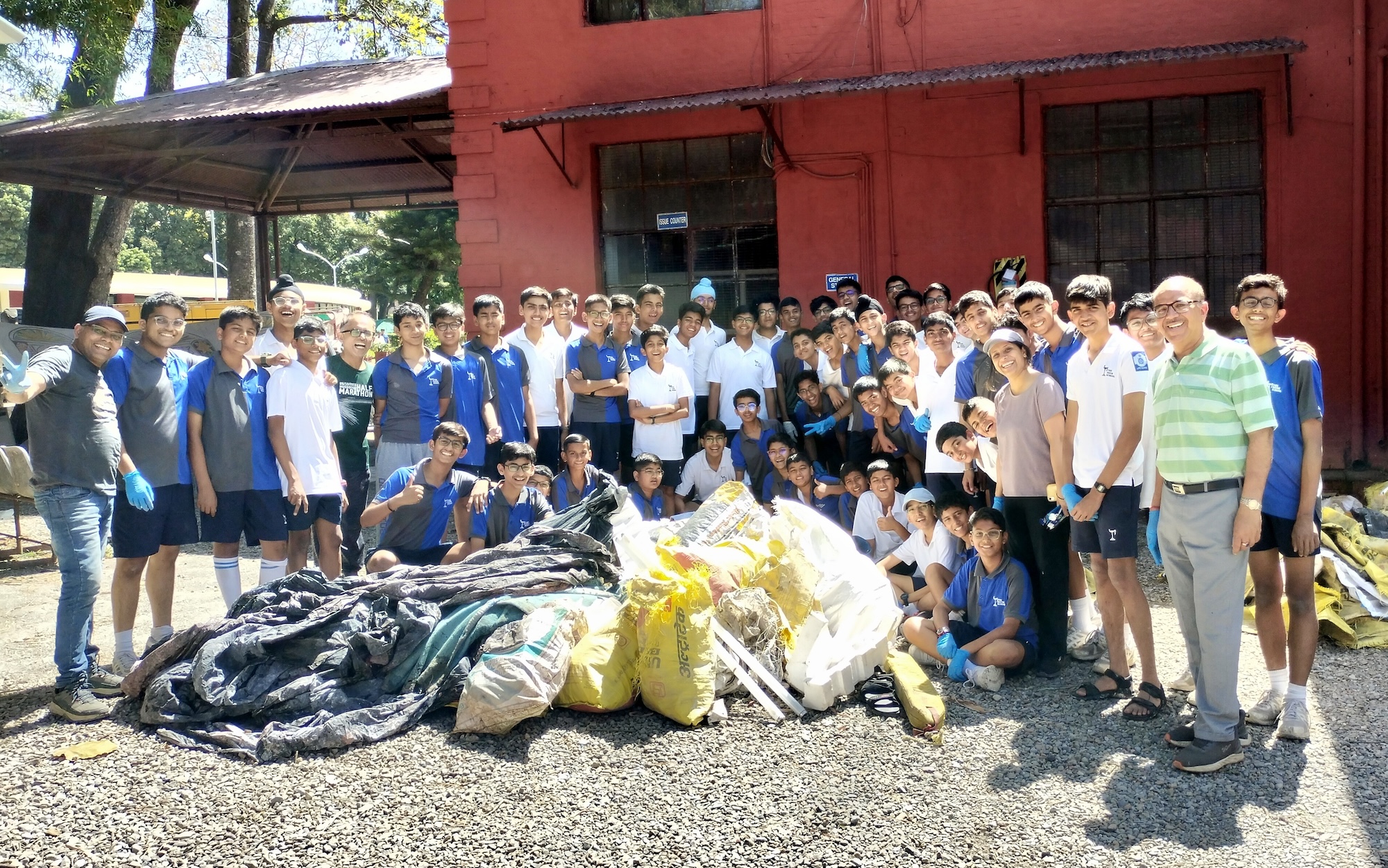
Cleanliness Drive
Students of the nature club and other enthusiasts gathered on Earth Day to clean the Khud (Khud is the natural ecosystem existing on the outskirts of the school).
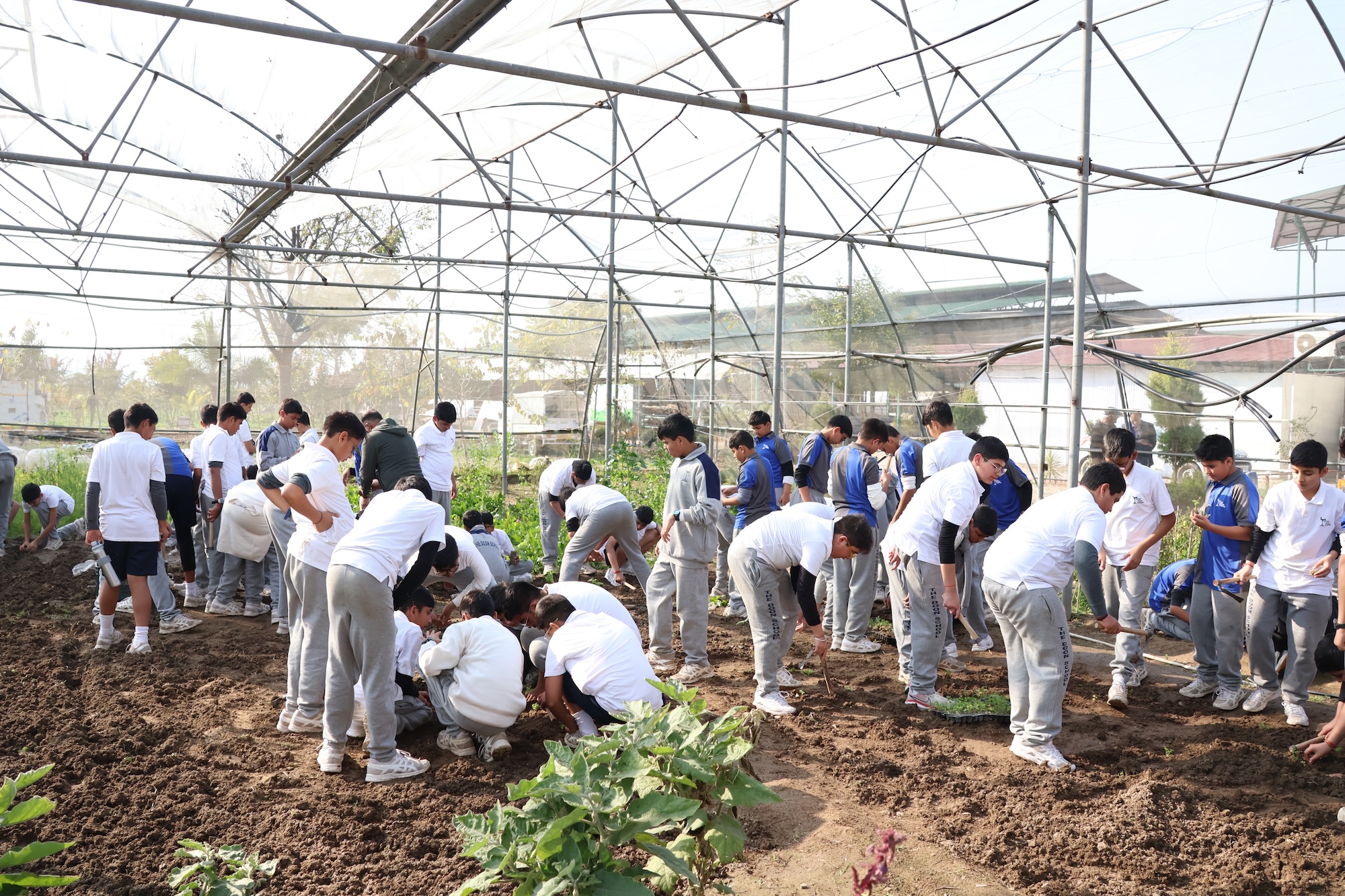
SDOF – Sustainable Development and Organic Farming
Taking a cue from the late Shri Sunder Lal Bahuguna who used to say that our education system has failed us – the environment and society. It is not holistic because it is limited to the use of just the mind and three fingers or ten in the case of the privileged computer owners. Education should involve the use of the mind as well as the limbs, only then will students learn the importance of water, soil, plants, trees and nature as such. Given the challenges of the environmental crises the SDOF program in the Doon School endeavours to face the challenge by sensitizing our students through an interdisciplinary approach. The curriculum aims at bringing together theoretical and practical knowledge for sustainable development. The students are made aware of sustainable farming techniques, soil and water conservation, energy production & consumption, waste management, etc. They have a class once a week in which they are given hands-on experience about the above-mentioned.

Flora and Fauna
Activities such as Birding, Owling, Quadrant sampling, and Butterfly Searching, are conducted periodically by the boy-in-charge, masters. The Bird count during GBBC in Feb 2024 is logged on eBird®️ (A Cornell Lab of Ornithology’s website). The Doon School has already been designated a birding hotspot by eBird®️, with over 135 species recorded so far.
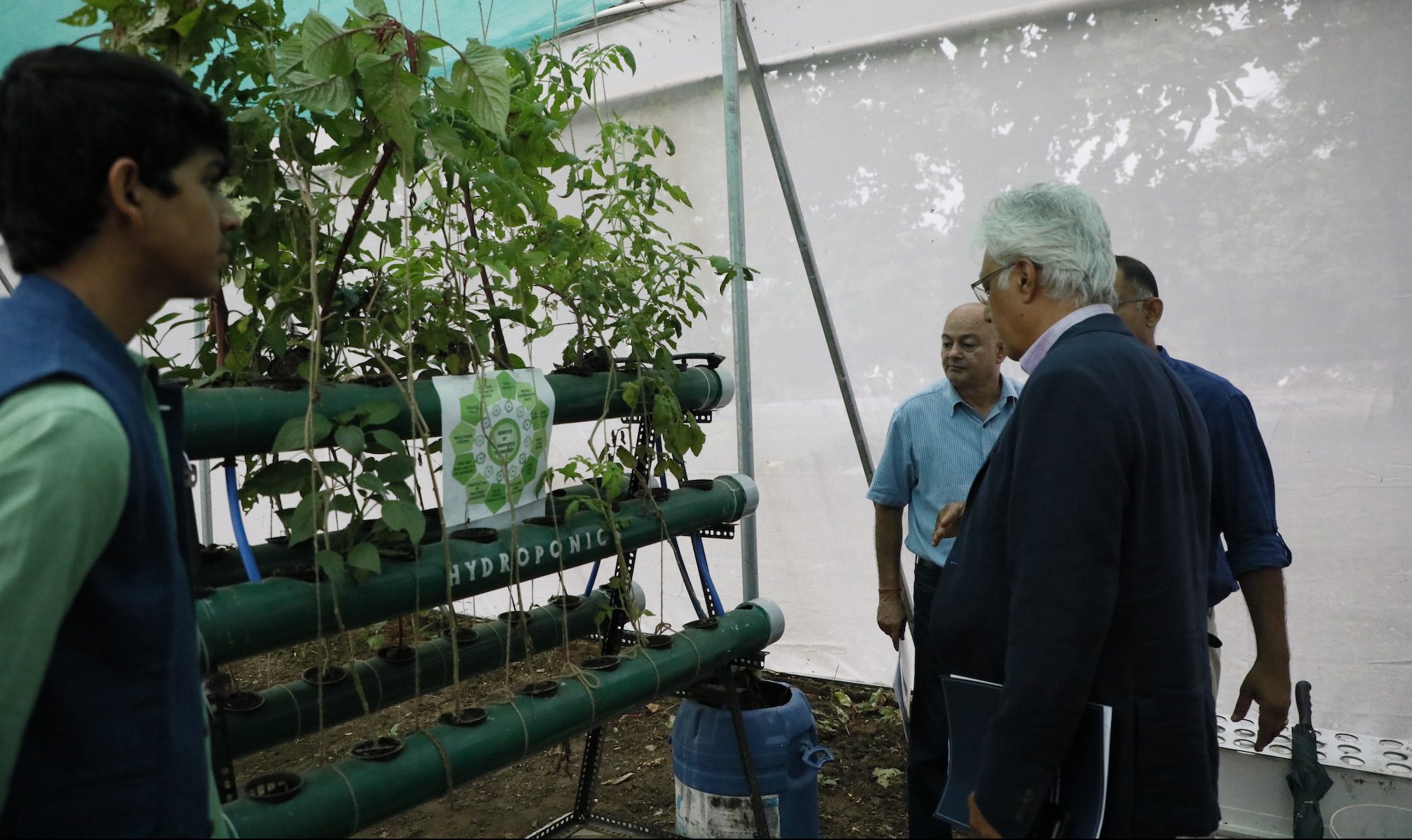
Hydroponics
The boys at Doon proudly implement a novel way of cultivating crops and vegetables. The technique is referred to as Hydroponics. This method refined by the boys at Doon, of plant production provides a nutrient-rich water solution, allowing plants to thrive in unexpected conditions. It is a revolutionary method of agriculture that offers several advantages while supporting sustainability. This not only develops a greater understanding of plant physiology but also allows us to maintain a continuous supply of fresh vegetables for the School community.
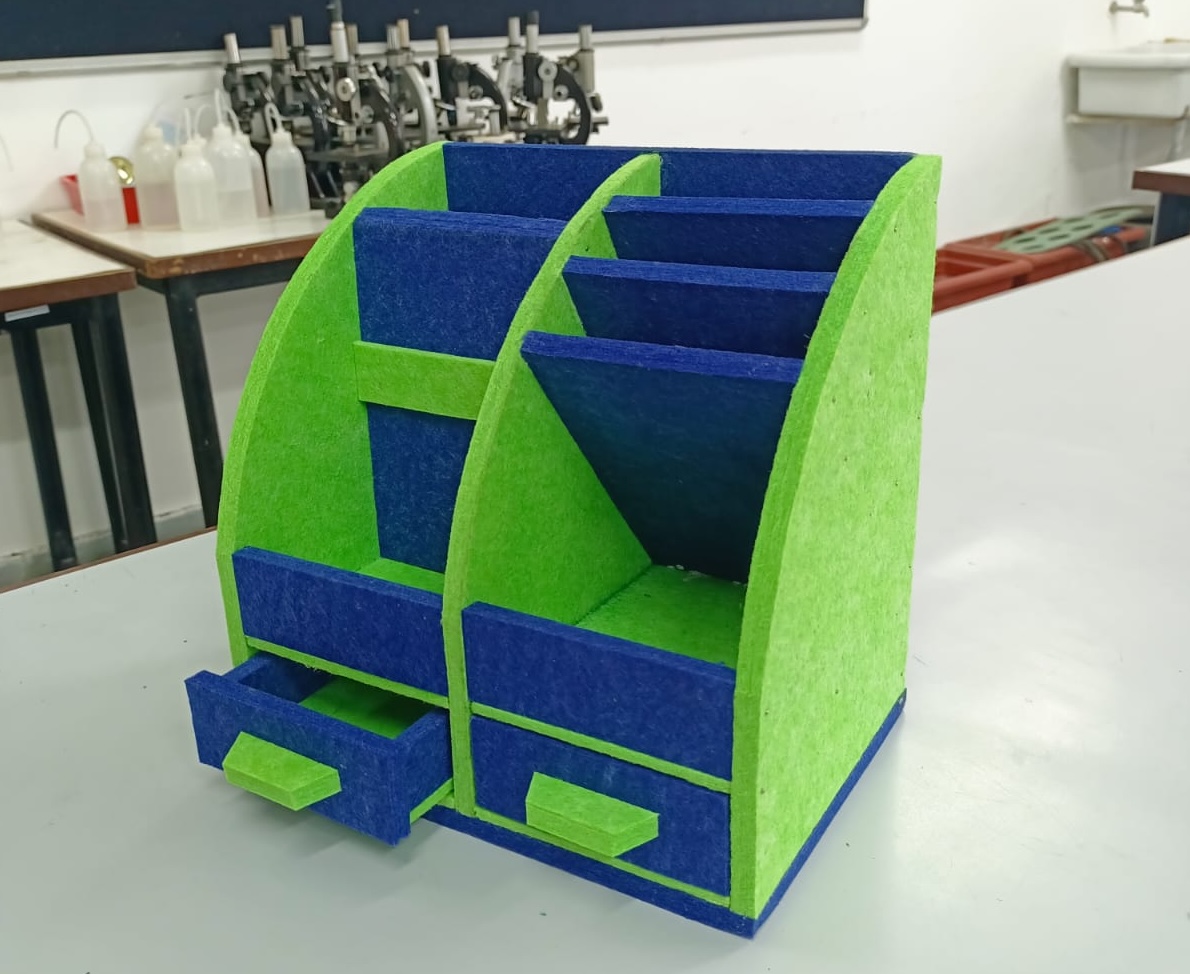
Making Stationary Trays from the Discarded Material
The team meticulously gather the scrap material, and transform it into an array of vibrant trays and stationary organizers, designed to cater to the demands of bustling examination halls and efficient office spaces, ensuring functionality and aesthetics harmoniously coexist.


